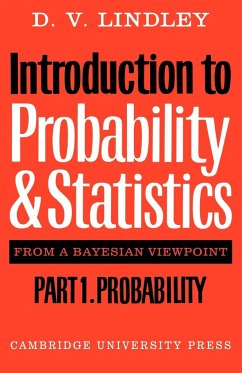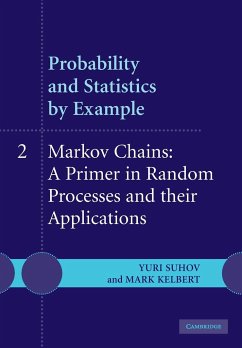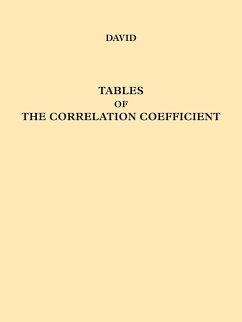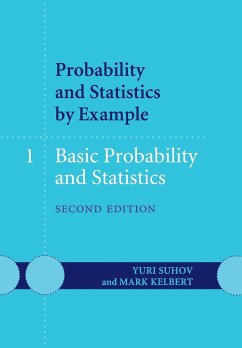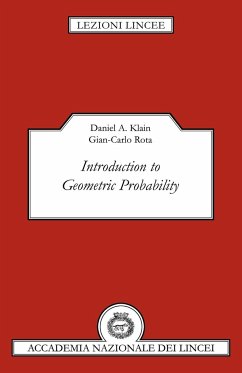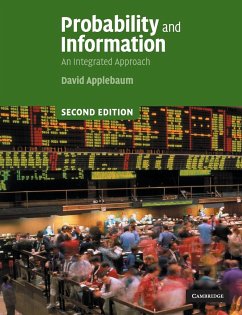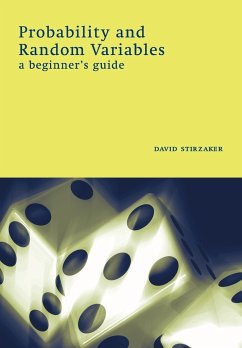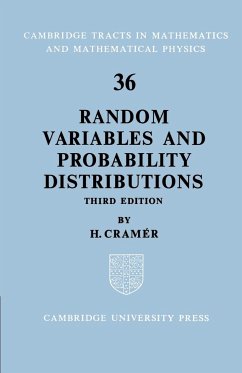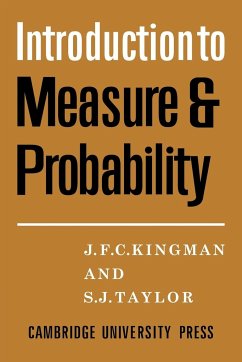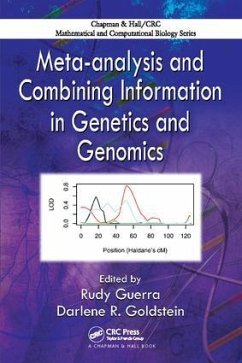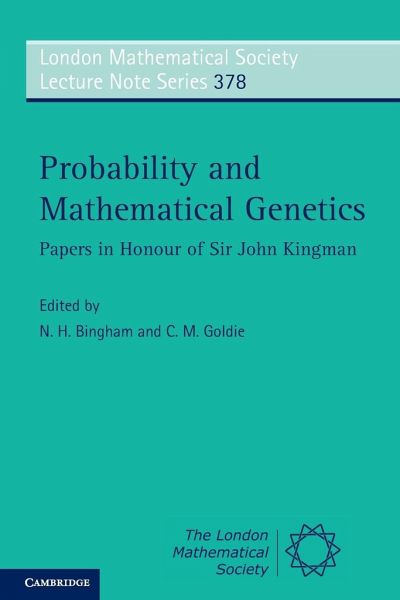
Probability and Mathematical Genetics

PAYBACK Punkte
49 °P sammeln!
Focussing on the work of Sir John Kingman, one of the world's leading researchers in probability and mathematical genetics, this book touches on the important areas of these subjects in the last 50 years. Leading authorities give a unique insight into a wide range of currently topical problems. Papers in probability concentrate on combinatorial and structural aspects, in particular exchangeability and regeneration. The Kingman coalescent links probability with mathematical genetics and is fundamental to the study of the latter. This has implications across the whole of genomic modelling includ...
Focussing on the work of Sir John Kingman, one of the world's leading researchers in probability and mathematical genetics, this book touches on the important areas of these subjects in the last 50 years. Leading authorities give a unique insight into a wide range of currently topical problems. Papers in probability concentrate on combinatorial and structural aspects, in particular exchangeability and regeneration. The Kingman coalescent links probability with mathematical genetics and is fundamental to the study of the latter. This has implications across the whole of genomic modelling including the Human Genome Project. Other papers in mathematical population genetics range from statistical aspects including heterogeneous clustering, to the assessment of molecular variability in cancer genomes. Further papers in statistics are concerned with empirical deconvolution, perfect simulation, and wavelets. This book will be warmly received by established experts as well as their students and others interested in the content.





